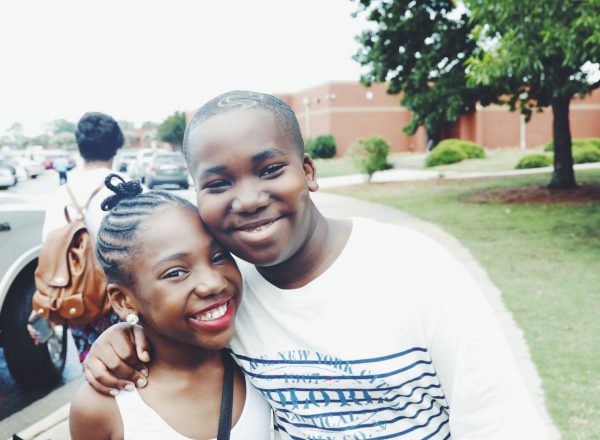Recently, a family friend passed away. He had lived a long, fulfilling life, and it was not an unexpected death, but that does not diminish the grief felt by his family and friends. His wife and children stood at the visitation, welcoming people who awkwardly spoke words intending to help, but who also knew their words meant little in this moment. What can you say during these times of grief? No matter the circumstances, navigating how to comfort those closest to the deceased is complicated at best. You can’t say you know how they feel. You cringe when you ask how they are doing. You know you shouldn’t avoid the topic, but you don’t know what to do.
So how do you advise your children to act when their friend loses a parent?
When your child’s friend loses a parent
I reached out to a few friends who also lost a spouse way too soon, asking if they would talk to their children about what advice would be the most ideal. Then I asked mine. Surprisingly, no matter the age or sex of the child, they all gave similar advice.
- Distraction. Play. Talk. Be silly. Act as if nothing happened and be the same friend you were prior to the parent’s death. Children want to know that not all parts of their lives have changed, so living life and doing what they had always done is crucial. Don’t feel obligated to talk about the deceased parent, but…
- Let Them Know You Are There. This is a very adult concept, and it’s hard to imagine my youngest saying this, or even requesting this, but if your child is able, the best way to help is to tell his friend he is there to listen whenever the need to discuss the parent occurs. That’s it. Don’t dwell on it or even expect them to immediately open up, but lay the groundwork that if a friendly, non-parental ear is needed, he is available.
- Listen Comfortably. Warn your child that when her friend does want to discuss her deceased parent, that it’s okay to laugh at the memory she is sharing, cry with her, or give her a hug. Ask her questions. Let her know you are listening. The shared memories won’t always be sad, and they won’t always be happy, but they are memories she needs to remember in that moment and having a friend who is comfortable listening to it helps.
- Allow the Friend to Have Control. After the initial announcement of a parent’s death, let the friend choose when to share his loss. Even if your child knows that his friend’s parent is gone, if he didn’t know him when it first happened, it’s best if he let his friend tell him on his own terms. If your child really wants to address it, I’m sure he could find a way to work it into the conversation, but if not, let the friend lead the way.
The most important idea is to not let your child’s friend feel any more differently than they already do. Children struggle to determine who they are and who they are meant to be. Often parents stress that we should embrace our differences, but it’s not always what they want to do. Talk to your child about not pointing out the missing parent in the pick-up line or at parental events, not asking awkward questions within earshot, or why certain questions are even awkward. Normalcy, or striving for normalcy, is key.
There is not one clear cut answer in handling death. Grief changes from one person to the next. I could ask two more families how they would want their friends to behave and get completely different answers. However, as a friend, if you show you are willing to learn and adapt to whatever is needed, you are one step closer to doing the right thing.



No Comments